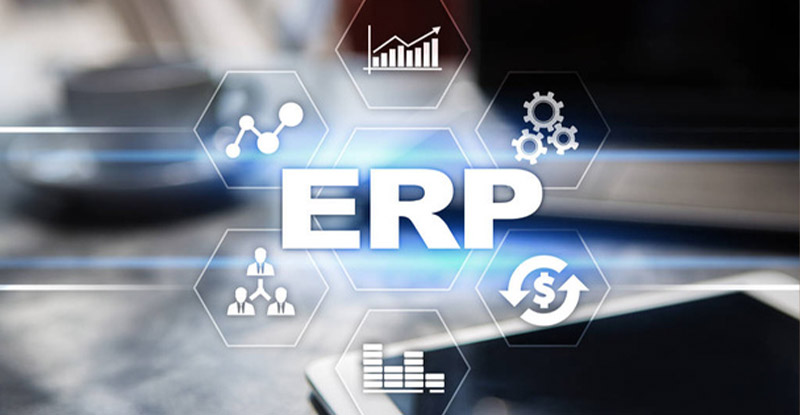Automated Invoice Approval Workflow In Transportation Industry


Immerse into the world of automated invoice approval workflows tailored for the transportation sector. Our industry guide offers practical strategies, best practices, and real-world examples to optimize invoice management and drive operational excellence in transportation logistics.
The transportation industry thrives on efficiency, but invoice processing often gets stuck in a slow lane. Stuck waiting for approvals, drowning in paperwork, and battling manual errors? We’re about to shift gears and accelerate your invoicing with automated invoice approval workflows.
In this article, we give you a comprehensive roadmap, guiding you through the benefits and how-to’s of automating your invoice approvals for a smoother, faster, and more efficient ride. Whether you’re a fleet manager, logistics provider, or just looking to streamline your transportation business, get ready to leave outdated processes behind and fuel your financial operations with the power of automation!

Streamline your transportation invoice approval workflows with advanced automation features designed to accelerate invoice processing times, enhance accuracy, and ensure compliance.
Automation plays a pivotal role in transforming transportation invoice approval processes, revolutionizing the way businesses manage and streamline their financial operations. Here’s how automation enhances transportation invoice approval:
Automation accelerates the invoice approval process by eliminating manual tasks, such as data entry and routing, which can be time-consuming and prone to errors. With automated workflows, invoices move seamlessly through approval stages, reducing processing times and ensuring timely payments to vendors and suppliers.
Automated systems as part of transportation ERPs enforce standardized approval protocols and validation checks, ensuring that invoices adhere to regulatory requirements and organizational policies. By reducing the risk of errors and discrepancies, automation enhances data accuracy and strengthens compliance with industry regulations and contractual agreements.
Automation streamlines the entire invoice approval workflow, from invoice submission to payment processing. It centralizes invoice management, provides visibility into approval statuses, and facilitates collaboration among stakeholders, leading to greater transparency and efficiency in financial operations.
By automating repetitive manual tasks and reducing processing times, automation helps organizations save costs associated with labor, paper-based processes, and late payment penalties. It optimizes resource allocation, minimizes operational overheads, and improves cash flow management, resulting in significant cost savings for transportation companies.
In essence, automation revolutionizes transportation invoice approval by enhancing efficiency, accuracy, compliance, and decision-making capabilities. By embracing automation technologies, transportation companies can streamline their financial operations, reduce costs, and gain a competitive edge in today’s dynamic business environment.
Experience the power of docAlpha by Artsyl to revolutionize your transportation invoice approval workflows. From data capture to approval routing, docAlpha automates every step of the process, eliminating errors, reducing processing times, and improving visibility into your financial operations.
Book a demo now
Automated invoice approval workflows refer to digital systems and processes designed to streamline and standardize the approval of invoices within an organization. The purpose of these workflows is to automate and optimize the entire invoice approval process, from receipt to payment, by replacing manual tasks with automated actions.
By leveraging technology, automated workflows ensure that invoices are routed to the appropriate stakeholders for approval, tracked throughout the approval chain, and processed efficiently.
The invoice approval process typically consists of several key components and stages:
In summary, automated invoice approval workflows play a crucial role in optimizing the efficiency, accuracy, and compliance of invoice processing in transportation companies, driving operational excellence and cost savings across the organization.
Workflow automation refers to the process of automating repetitive tasks and business processes, such as invoice approval workflows, using technology and software solutions. It involves defining the sequence of steps, rules, and conditions required for the completion of a specific task or process, and automating these steps to streamline operations and improve efficiency. Workflow automation minimizes manual intervention, reduces errors, and accelerates the pace of business processes.
Approval routing is the method used to direct invoices or documents through predefined paths to the appropriate stakeholders for review and approval. It involves establishing rules, criteria, and hierarchies to determine the sequence and recipients of approval tasks within an organization.

Approval routing ensures that invoices are routed to the right individuals or departments based on factors such as invoice amount, vendor, and organizational structure, facilitating timely decision-making and compliance with approval policies.
Data validation is the process of ensuring that data entered into an automated invoice approval workflow system meets specific criteria and standards for accuracy, completeness, and consistency. It involves performing checks and validations on data fields, such as invoice numbers, amounts, and dates, to identify errors, discrepancies, or missing information.
Data validation helps maintain data integrity, reduces the risk of processing errors, and ensures that invoices comply with regulatory requirements and organizational policies.
Integration refers to the process of connecting and combining different systems, applications, or data sources to enable seamless communication and data exchange between them.
In the context of automated invoice approval workflows, integration involves linking the workflow system with other enterprise systems, such as:
Integration streamlines data sharing, eliminates duplicate data entry, and enables real-time synchronization of information, improving operational efficiency and decision-making capabilities.
An audit trail is a chronological record or log of all activities, changes, and events that occur within an automated invoice approval workflow system. It tracks the lifecycle of invoices from submission to approval, providing a comprehensive history of actions taken by users, dates and times of events, and any modifications made to invoice data.
An audit trail enhances transparency, accountability, and compliance by enabling organizations to trace the flow of invoices, identify potential bottlenecks or discrepancies, and demonstrate regulatory compliance during audits or investigations.
Discover Artsyl docAlpha for seamless transportation invoice approval workflows. Integrated to perfection, these solutions automate data extraction, validation, and approval routing, ensuring accuracy and compliance at every stage.
Book a demo now
Automated invoice workflow systems in transportation offer a range of features and functionalities designed to streamline the invoice approval process and enhance operational efficiency. Here are key features commonly found in such systems:
Automated systems allow for the submission of invoices electronically, either through email, online portals, or direct integration with suppliers’ systems. They support various file formats and have the capability to capture invoice data accurately using optical character recognition (OCR) technology.
These systems automate the routing and approval of invoices based on predefined rules, thresholds, and approval hierarchies. They facilitate seamless collaboration among stakeholders by sending notifications and reminders, tracking approval statuses, and escalating invoices when necessary.
Automated invoice workflow systems provide centralized document management capabilities, allowing users to store, organize, and retrieve invoices and related documents easily. They support version control, document linking, and access controls to ensure data security and compliance with regulatory requirements.
These systems integrate seamlessly with enterprise resource planning (ERP) and accounting systems, enabling data synchronization and real-time updates between financial systems and invoice workflow platforms. Integration eliminates manual data entry, reduces errors, and ensures consistency across systems.

Automated systems perform data validation checks to ensure the accuracy and completeness of invoice information. They enforce compliance with internal policies, regulatory requirements, and tax regulations by validating invoice details against predefined criteria and flagging exceptions for review.
Automated invoice workflow systems maintain a comprehensive audit trail of all invoice-related activities, including submissions, approvals, rejections, and modifications. They offer customizable reporting and analytics capabilities, allowing users to track key performance indicators, identify trends, and generate compliance reports.
These systems implement robust security measures to safeguard sensitive invoice data and prevent unauthorized access or tampering. They adhere to industry best practices for data encryption, user authentication, and role-based access control to protect confidential information.
In summary, automated invoice workflow systems in transportation streamline invoice processing, improve accuracy, ensure compliance, and enhance collaboration among stakeholders. By using these features and functionalities, transportation companies can optimize their financial operations, reduce costs, and drive business growth.
Elevate your transportation finance operations to new heights with Artsyl InvoiceAction. With InvoiceAction, you can automate invoice routing, enforce compliance, and gain real-time visibility into your financial transactions.
Book a demo now
Now that you understand the benefits, it’s time to implement the invoice approval workflows. Begin by assessing your current invoice approval process and identifying pain points, inefficiencies, and opportunities for improvement.
Once decided on the system requirements, prepare and migrate existing invoice data into the automated system. Ensure data integrity and accuracy by conducting thorough validation and testing procedures. Set up user accounts, permissions, and preferences in the system.
RELATED: Automated Invoice Matching with AI
Make sure to provide comprehensive training and support to users and stakeholders involved in the invoice approval process. Educate them on the benefits of automation, new workflows, and system functionalities. Address any concerns or resistance to change through effective change management strategies.
Before the rollout, conduct pilot testing of the automated invoice approval system with a select group of users to identify potential issues, validate workflows, and gather feedback. Iterate and refine the system based on user input and testing results.
Continue by conducting thorough testing of integration processes to validate data accuracy, completeness, and integrity. Test various scenarios, such as invoice creation, approval status updates, and payment processing, to ensure seamless interoperability between systems.
RELATED: Debit Invoice and Debit Note: What Is It
Once integration testing is successful, deploy integration solutions into production environments. Monitor integration processes and troubleshoot any issues or discrepancies that arise during initial deployment.
Once the pilot testing phase is successful, deploy the automated invoice approval system across the organization. Communicate rollout plans, timelines, and expectations to all stakeholders. Monitor system performance and address any issues or challenges that arise during the rollout process.
First of all, identify the integration points between the automated invoice approval system, transportation management systems (TMS), and accounting software. Determine the data fields, formats, and protocols required for seamless data exchange.

As the next step, choose the appropriate integration method based on your organization’s technical infrastructure and requirements. Options may include API-based integration, file-based integration (e.g., CSV, XML), or complete integration solutions such as Artsyl docAlpha.
Continue by configuring integration interfaces between the automated invoice approval system, TMS, and accounting software. Ensure compatibility, data mapping, and data transformation between systems to facilitate accurate and efficient data exchange.
RELATED: What is an Invoice, and Why Is It Important for Businesses?
Make sure to document integration procedures, configurations, and troubleshooting guidelines for future reference and maintenance. Ensure that relevant stakeholders have access to documentation and training materials to support ongoing integration efforts.
By following these steps and best practices, you can effectively implement automated invoice approval workflows in transportation and seamlessly integrate them with existing TMS and accounting systems to streamline financial operations and enhance efficiency.
Here are some real-world examples of transportation companies benefiting from automated invoice approval workflows. Consider this:
FedEx, a global leader in logistics and transportation services, implemented automated invoice approval workflows to streamline its accounts payable processes. By automating invoice receipt, validation, and approval, FedEx significantly reduced processing times and eliminated manual errors. The company also gained better visibility into invoice statuses and improved compliance with regulatory requirements.
UPS, another prominent player in the transportation industry, adopted automated invoice approval workflows to enhance efficiency and accuracy in its financial operations. By integrating automated systems with its transportation management and accounting software, UPS achieved faster invoice processing times and improved cash flow management. The company also reduced administrative overheads and optimized resource allocation, resulting in cost savings and improved profitability.
DHL, a leading provider of international express shipping and logistics services, leveraged automated invoice approval workflows to streamline its invoice processing and payment cycles. By automating data entry, validation, and approval tasks, DHL minimized invoice processing errors and reduced the risk of late payments. The company also enhanced collaboration among internal stakeholders and suppliers, leading to improved vendor relationships and service levels.
C.H. Robinson, a third-party logistics provider, implemented automated invoice approval workflows to optimize its accounts payable processes and enhance financial visibility. By automating invoice routing, approval, and payment reconciliation, C.H. Robinson improved invoice accuracy and reduced processing costs. The company also gained real-time insights into its financial performance and strengthened compliance with regulatory requirements.
These real-world examples demonstrate how transportation companies across the industry have successfully implemented automated invoice approval workflows to drive efficiency, reduce costs, and enhance financial visibility.
Experience the Future of Transportation Invoice Automation with Artsyl!
Ready to revolutionize your transportation invoice approval workflows? Look no further than Artsyl’s cutting-edge solutions. With docAlpha, you can streamline processes, reduce errors, and accelerate invoice approvals like never before.
Book a demo now
By embracing automation technologies, transportation companies can optimize their financial operations and gain a competitive edge in today’s dynamic business landscape. By implementing an automated workflow, you can boost efficiency, eliminate errors, improve transparency, and make data-driven decisions that optimize your cash flow and fuel your business growth.
So, put your manual processes in park and embrace the automated highway of invoice approvals. Watch your approvals zoom past bottlenecks, invoices get paid faster, and your transportation business cruise towards financial success.